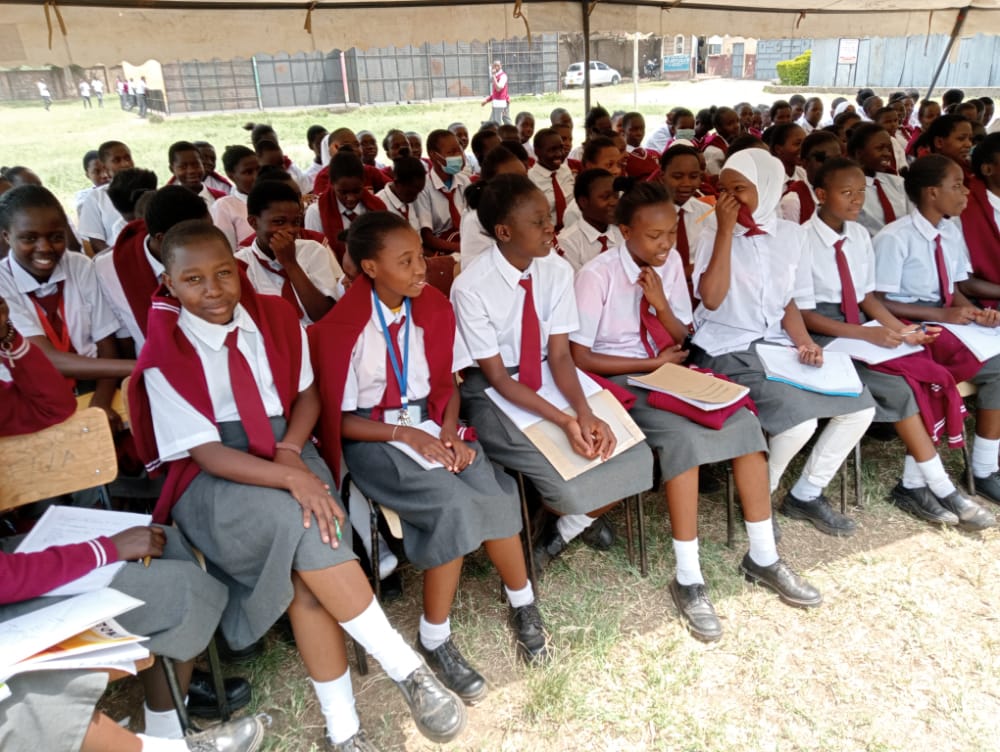As the needs of the education sector in Africa intensify, compounded by challenges ranging from food security and climate change to conflict and displacement, the donor community is turning its attention from education to other social sectors. This poses a serious risk for sustainability to donor-funded organisations working in the education sector on the continent.
What are the challenges for FAWE? How can the organisation ensure its longevity and maintain the positive impact of its work in this restricted context without moving away from its original mandate? What opportunities exist both within Africa and elsewhere around the world for FAWE to diversify its sources of funding and so that it can strengthen its impact and make itself less vulnerable to the effects of reduced donor support?
Background
FAWE has made significant contributions to the promotion of girls’ education in sub-Saharan Africa since it was founded in 1992. Schools in which FAWE has undertaken interventions have recorded increased rates of enrolment, retention and completion for girls. Girls have been enabled to improve their academic performance overall and acquire social skills that allow them to better their quality of life and enhance their life chances. An encouraging number of countries in sub-Saharan Africa have consequently adopted and integrated into their education systems the policies and innovations championed by FAWE.
Despite the progress made by African countries in improving girls’ access, retention and performance in schools, however, a number of challenges remain to achieving the Education For All (EFA) and Millennium Development Goals (MDGs) in the region, in particular those related to gender equality. Therefore FAWE’s work remains today as relevant as 19 years ago when the organisation took up its mandate.
New funding architecture
However, a majority of FAWE’s main donors are shifting their focus and priorities from education and will concentrate more on economic development issues such as health, food security, fragile states and technical and vocational education and training (TVET).
Priorities of some of FAWE’s main donors
DANIDA Gender and equality
Democracy and human rights
Afghanistan
Growth and employment
Stability and fragility
Environment and climate
Education (phasing out)
FINLAND Human rights
Climate and environment
Peace/crisis prevention
Humanitarian assistance
Education
Environment and sustainable development
Netherlands Human rights
Humanitarian assistance
Good governance
Environment
Social development
Norad Climate change and environment
Health and AIDS
Macroeconomics and public administration
Energy
Education and research
Yet in this current global economic crisis and the climate of ‘belt tightening’ and spending cuts, the needs of the education sector in Africa are not diminishing. In fact, these needs are intensified because of the adjacent problems of food shortage, job loss, conflict and displacement of populations, environmental disasters, and divestment from social sectors that can be witnessed today. Owing to FAWE’s method of raising almost all its funds centrally, this new development in the donor community will very likely have an adverse effect on FAWE’s funding.
8th FAWE General Assembly
Yet FAWE does not plan to simply react to these new dimensions. Instead, the organisation plans to develop the FAWE network while being mindful of this new context.
In view of the above, FAWE’s 8th General Assembly meeting in Nairobi, Kenya, from 28 to 29 July 2011 was a business session devoted to finding strategies for sustainability to enable the organization to continue its work.
The General Assembly meeting was an opportunity for FAWE to:
- Provide a forum for its strategic and funding partners to propose strategies and forge the way forward to ensure FAWE’s sustainability without moving away from its original mandate
- Identify potential opportunities for the education of girls and women in the countries in which it operates as well as challenges that hinder their advancement
- Conduct a mid-term review of its Strategic Plan 2008-2012
- Review its governance structure to grow within the current donor environment
- Elect a new Executive Committee as stipulated by the FAWE Constitution
Thematic discussions
The thematic discussions during the General Assembly included:
- Challenges for FAWE’s sustainability: perspective from FAWE’s donors
- What opportunities exist globally for FAWE’s sustainability?
- What are the opportunities for FAWE within the African continent?
- FAWE’s Strategic Plan 2008-2012: a mid-term review
- Improving FAWE’s effectiveness: a review of governance structure, roles and responsibilities
- Strengthening gender research to improve girls’ and women’s education in Africa: Launch of the FAWE Research Series
- Developing a gender in education scorecard: presentation of statistical review and case studies
- FAWE’s Strategic Plan 2013-2017: reflecting on new strategies – mobile communication technologies
- Celebrating FAWE at 20: concept development for FAWE’s 2012 celebration campaign
- Charting our impact: three-year report on the results of FAWE’s work 2008-2010
At the end of the two-day conference, FAWE had a new Executive Committee, the first elements of a more robust resource mobilisation and sustainability plan, and potential new directions for the development of its next Strategic Plan for 2013-2017.






Leave A Comment